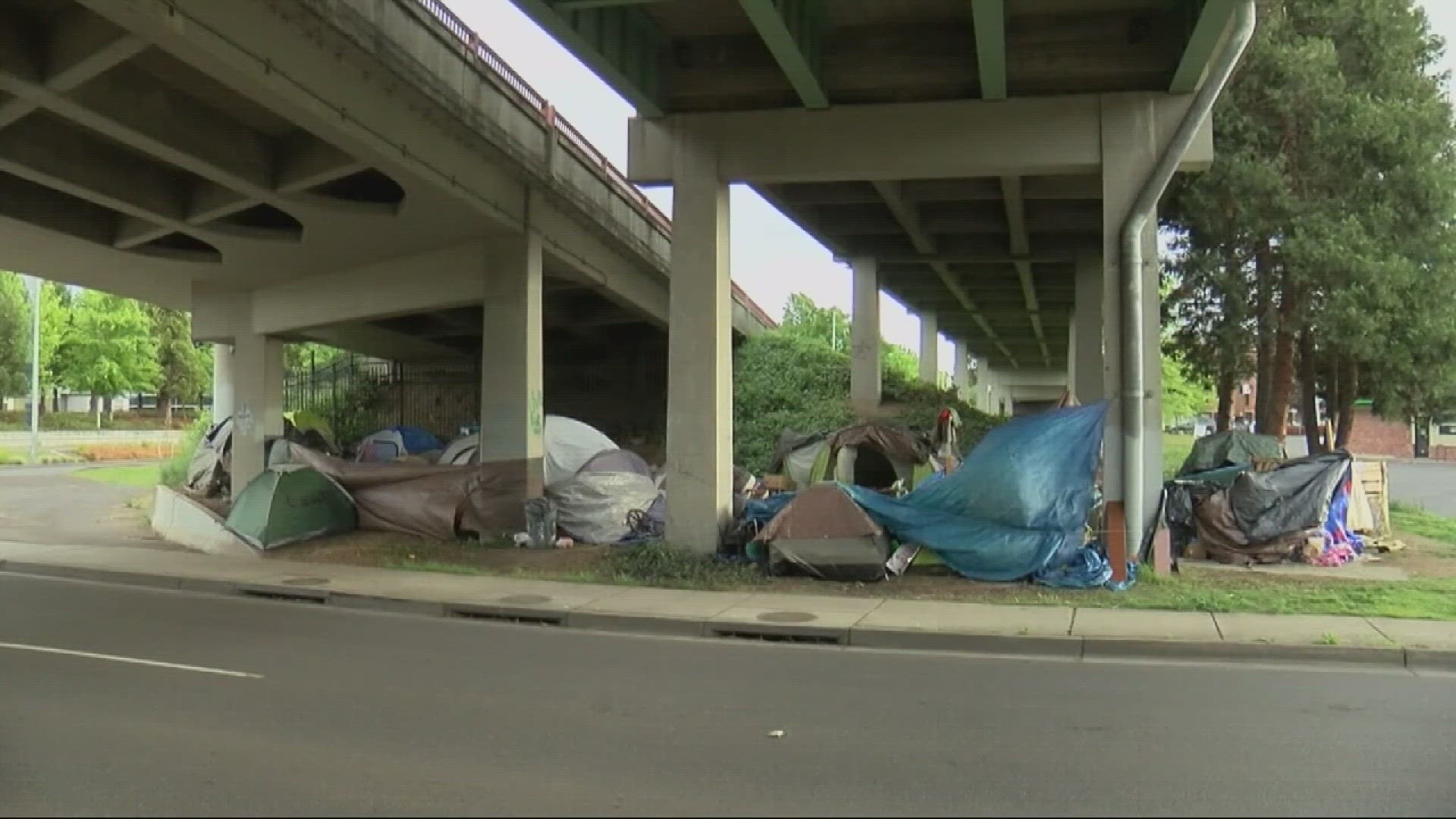EUGENE, Ore. — Cities of all sizes are struggling with a rise in homelessness. In the Eugene-Springfield area, almost 3,000 people are without homes. About 74% of that population is unsheltered.
"At the last count by the Department of Urban Development, Lane County was at the top of per capita houselessness in the U.S.," said Jo Weaver, associate professor of global studies at the University of Oregon (UO).
She said part of that is due to the size of the city.
"We're a smaller city, we have a smaller tax base. So there is less wiggle room for us to start programs so we can address the root of this problem — which is lack of sufficient and affordable housing," Weaver said.
Now, researchers from UO want to figure out the health effects of people facing housing insecurity.
"We're not asking, 'Is homelessness bad for health?' We know it's bad for health. That's obvious," Weaver said. "But what we're asking is, 'How is homelessness bad for health?'"
The study includes health tests, questionnaires, information about people's life history and background to figure it out.
"We're wondering, what are the sort of, for the lack of a better term, pinch points, where smallish but structured changes that could make a big difference in someone's physical health, mental health and overall well-being," Weaver said.
So far, the results provide a harsh reality of what many people experiencing homelessness face.
"Everybody that's experiencing houselessness is struggling with the stress and insecurity of not knowing where you're going to sleep at night, not knowing if you're going to be hassled at night, so a lot of sleep issues," Weaver said.
Researchers said that also includes long-term health effects.
"There's a lot of people experiencing long-term effects of lack of health care, so folks that have ongoing medical conditions that may have predated housing insecurity fare, are having a hard time getting to the doctor," Weaver said.
The hope is the study will spark change and more health equity for those facing housing insecurity.
"One of the biggest challenges of this work is that many people that are in a position to do something about it would rather not look at the frank brutality that people are dealing with," Weaver said.
The team from UO is planning to do a presentation for local officials about the findings of the study.
Weaver said they're also planning to apply for larger grants that will allow them to do intervention work to help the homeless.
To learn more about the homeless crisis in Portland and other areas, you can check out this link.

